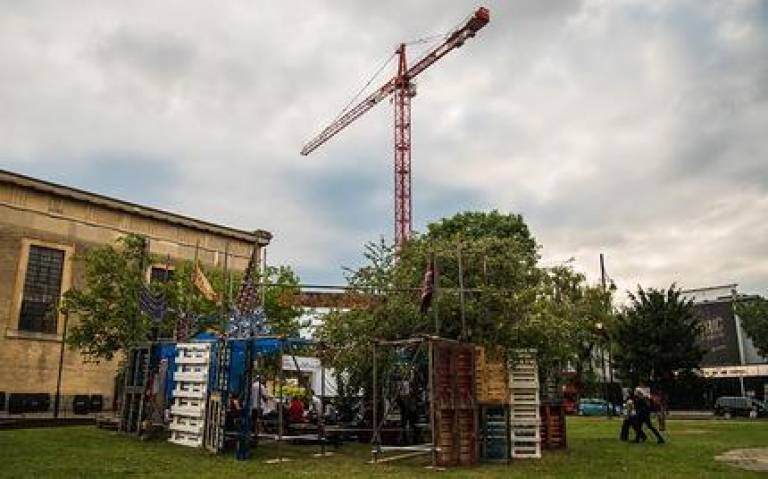Histories of Global London - two new Urban Lab elective modules for UCL postgraduates
25 September 2018
UCL Urban Laboratory will deliver two new modules, Histories of Global London, 1900 to the Present (I) and (II), available to UCL postgraduate students from January 2019

Led by Prof Ben Campkin and Dr Clare Melhuish, the modules (BARCO129 and BARCO128 respectively) take London as their primary case study, focusing on understanding how the city's built environment has been shaped by its global connections and associated population flows, from 1900 to the present.
It considers the changing framework of planning and community development legislation at a number of definitive moments, such as the publication of the County of London Plan (1943), the dissolution of the Greater London Council in 1986, the establishment of the Greater London Authority and Mayor of London in 2000, and the latest Draft London Plan published by Sadiq Khan in 2017.
The module draws on ethnographic, literary and visual sources to analyse key changes in the built environment in relation to the cultural representation of minority social groups. It will augment understandings of the significance of 'subaltern' community identities, ethnicities, cultural practices and intangible heritage in the formation of particular London neighbourhoods and built landscapes during this period, positioning the city's global histories and diversity as central to a critical understanding of its urban heritage and futures. The module asks students to engage critically with questions such as: how do we assess urban heritage as a social, cultural and economic asset for urban development in complex multicultural/postcolonial cities (UNESCO 2011)?
Participants engage with key debates in the history and theory of urban change in relation to theories of identity, critical heritage, and equalities. Participants engage with key debates in the history and theory of urban change in relation to theories of identity, critical heritage, and equalities. Part 1 focuses on historical, theoretical and methodological contexts (15 credits) and Parts 1+2 (30 credits) also includes fieldwork at an identified London site and/or archive and production of an appropriate project output.
The course is administered as part of the Architecture and Historic Urban Environments MA at the Bartlett School of Architecture. Students from other postgraduate courses are encouraged to apply, and it is particularly suitable for those taking MA, MSc or MRes courses in Architectural History, Architectural Design, Urban Design, Urban Studies, Material and Visual Culture, Art History, Architecture and Digital Theory, Situated Practice, and Built Heritage Management (IoA).
For further information about the course, please contact Ben Campkin or Clare Melhuish.
- View on the UCL Module Catalogue
Image: Rebel Space Pavilion by RESOLVE during the 'Refuge, The Subaltern and Urban Space' event as part of the Brixton Design Trail and the London Design Festival (2016).
 Close
Close

